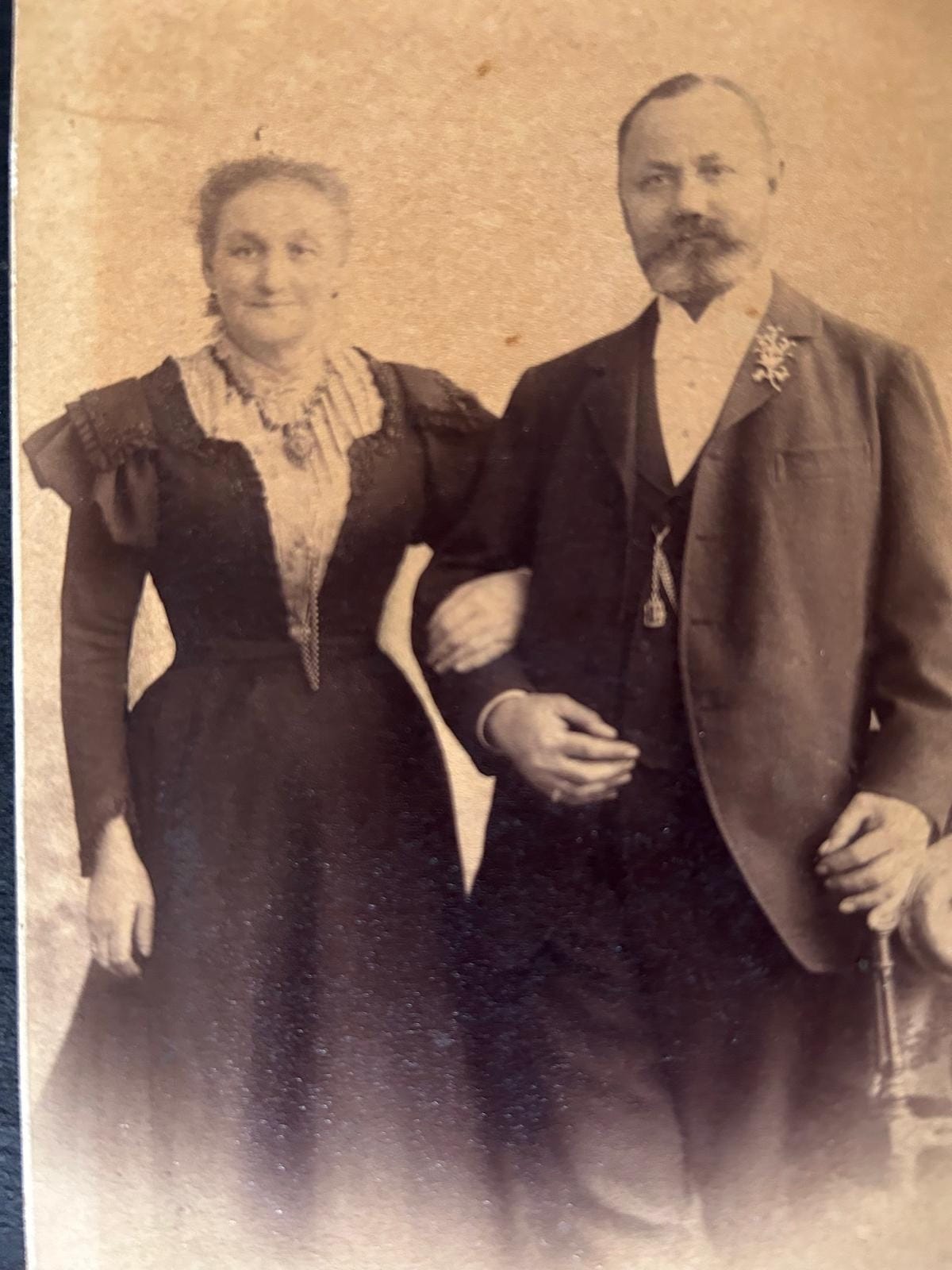I just returned from Berlin, Germany where 33 cousins from around the world winged in to dig deeper into our ancestral roots.

My grandfather was a German, born and raised in Berlin. His family was also Jewish, which led to his immigration in 1939 at age 14 to the United States to live with his Uncle Richard to avoid the concentration camps.



Over his lifetime, my Opa wrote 100’s of letters and maintained close contact with nearly all of the cousins who escaped—introducing me to a global network of close, extended family, many of whom shared intense stories about family heros and tragedies during the War.

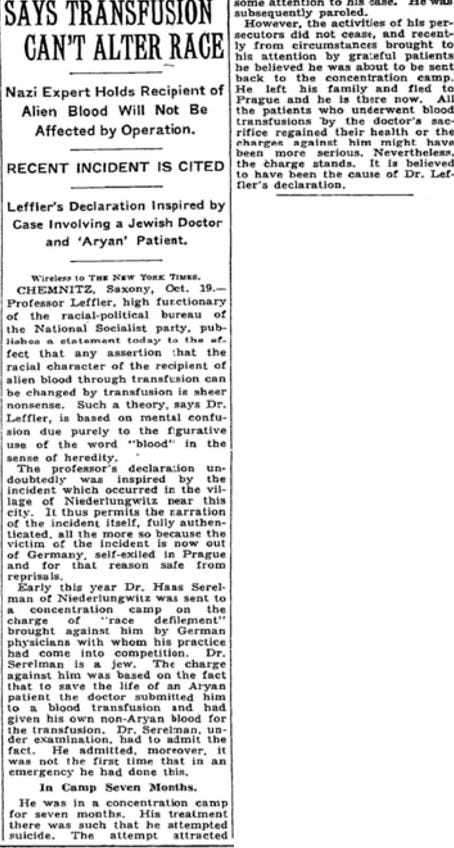

My Jewish roots have always been important to me. As a child, I asked to attend Jewish “Sunday School” to learn more, renewed Passover family traditions, and joined a Kabbalah study group as a teenager. As the family historian for my generation, I’ve collected photos, stories, and family trees of our ancestry, including for my other 75%, which is mostly Swedish and Scottish, grounded in Mormon, Protestant, and Catholic faiths. I’ve landed now with Unitarian values, celebrating a selection of Wiccan, Jewish, and Christian holidays, with a meditation practice. Our cousins around the world remain important people in my life.
So, when the “Cousins” organized a family history gathering in Berlin, I was definitely IN. Big thanks to my mother, my three siblings and about thirty others spent three days together this May 2025 visiting the homes, schools, and businesses of our ancestry there, learning from family historian Tim Hirsch, along with guides and museums.
What we cousins who gathered have in common is that we are all descended from Samuel Genserowski (1853-1917) and Fanny Hirschfeld (1839-1913).
We don’t know a lot about them, except that Sam came from what is now Lithuania to Berlin to be healed at the Jewish Hospital there, due to an injury from a horse, then met Fanny, who ran the boarding house where he lodged. They opened a cigar shop and had five children, including Rosa (1873), Richard (1875), and Alex (1882)… from whom the cousins at the gathering are descended.

On this visit, it was such a pleasure to visit the old cigar shop on Steinstrasse, above which lived the family. It is now used as an office for an architecture firm, and the owners kindly led us through.

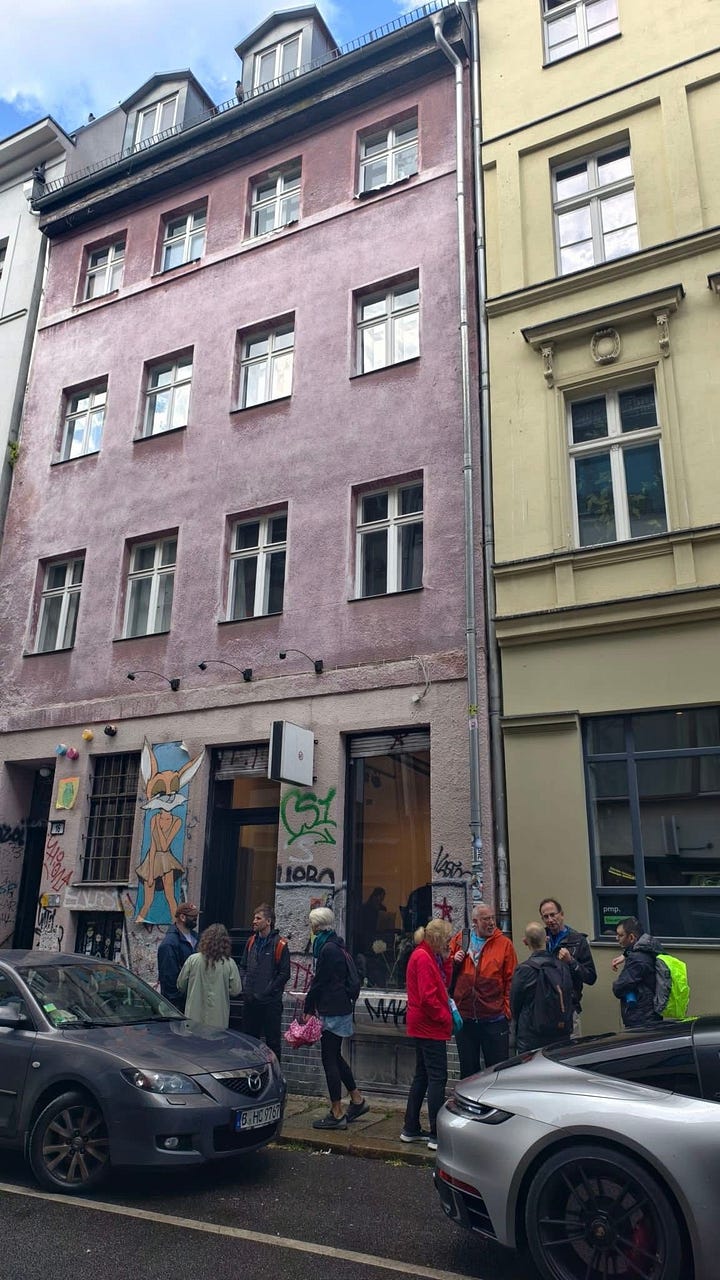
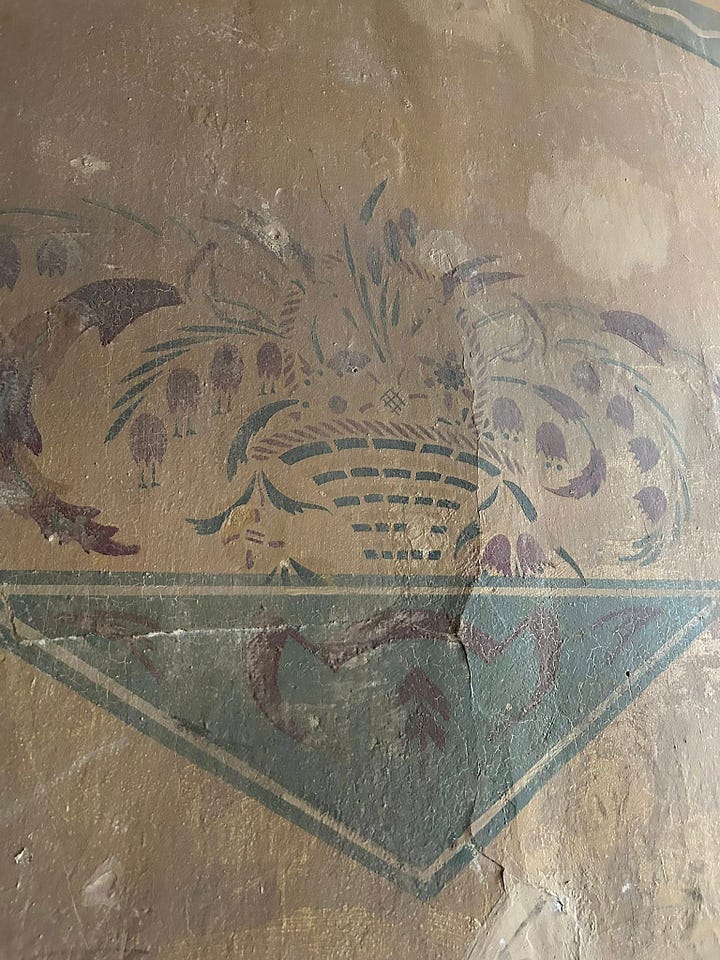
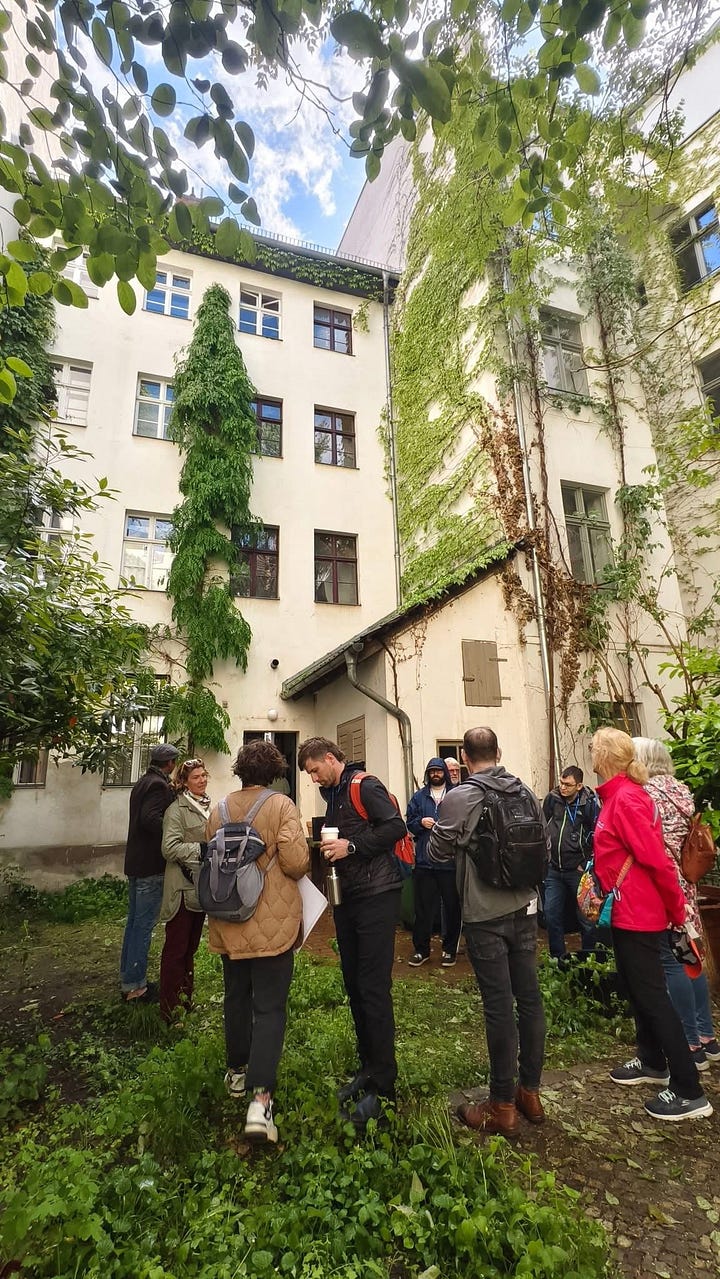
On this visit, we visited neighbourhoods where our ancestors lived, including my grandpa’s childhood appartment near where Albert Einstein grew up. We also visited the train station from which many relatives were deported to concentration camps around Europe. And, we got to tour a family bakery and flour mill along the River Spree, where many family holiday gatherings took place before the war.
That was then. This is now. While it’s important to remember the past so that we can hopefully not repeat it, it’s also important to explore new connections and possibilities. Following our Berlin gathering, Ryan and I were hosted along the Baltic Sea with a German family from Hamburg whom we’ve grown close with. From them, we heard stories of hunger, of East German lifestyles, and of the slow way that Germany changed before the War, with many not believing the horrors that they would hear of. This family has to contend with WWII on a regular basis, with small golden plates in sidewalks where people were removed to concentration camps, and school visits to Auschwitz and other museums.
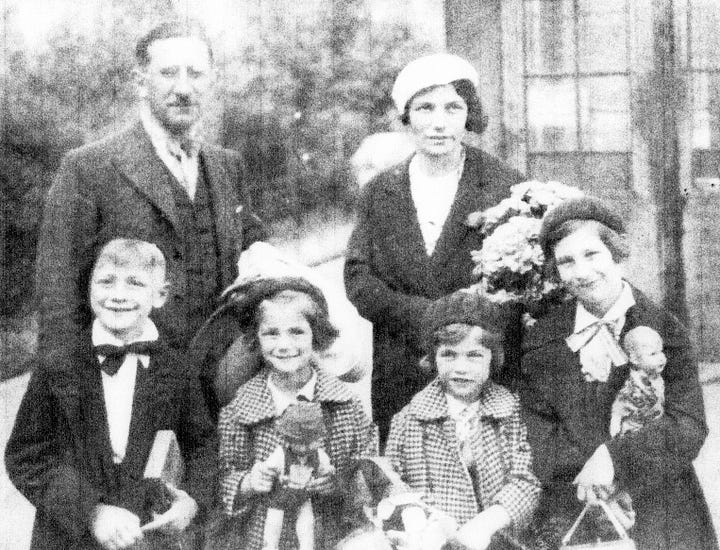
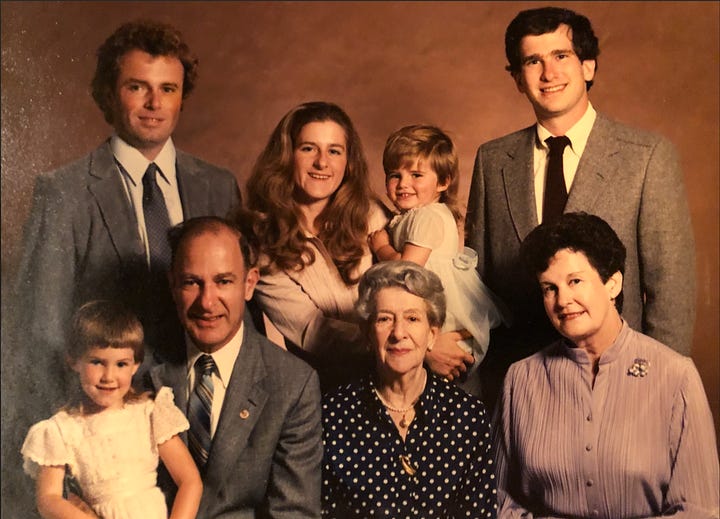
I have such mixed emotions about our German-Jewish family history. On one hand, I grew up with my grandfather speaking German with his mother—I even took German lessons for a while—and we ate lots of liverwurst and brats, sauerkraut, gooseberries and German desserts. Germany even granted my siblings and I European citizenship in reconciliation. On the other hand, how can one forgive the horrors of the Holocaust, the destruction of families, the complete disrespect for human worth, and the cold-blooded robbery and killing of so many people? In my lifetime, I have the WWII to thank for a global network of close family ties and a greater awareness of the role we must all play in making peace and honouring human rights. I am grateful for the ongoing reconciliation that Germany has engaged in, and it inspires me to participate in meaningful reconciliation work here in Canada.
Since childhood, I’ve been aware of horrors happening all over the globe—in the Middle East, Rwanda, Nicaragua, Sudan… and I know that the work for peace and mutual respect is never done. Recently, I hosted a Tea Party for Peace and collected some pertinent quotes:
“Peace is a daily, a weekly, a monthly process, gradually changing opinions, slowly eroding old barriers, quietly buidling new structures.” - John F. Kennedy
“It isn’t enough to talk about peace. One must believe in it. And it isn’t enough to believe in it. One must work at it.” - Eleanor Roosevelt
“Peace comes from within, do not seek it without.” - Buddha
“Darkness cannot drive out darkness; Only light can do that.” - Martin Luther King, Jr.
Before my grandfather passed, he watched the rise of Trump in the U.S., and he said it felt just like the rise of Hitler in his youth. He still remembers watching Hitler ride by in parades and he saluted along with others, so as not to stand out. So, the question I’m left with from our family visit to Berlin is:
What can each of us do today for global peace, fairness, and respect in the face of corruption, violence, and human disregard?
Each of can play a different and unique role. For me: I can meditate. I can shine a light towards a better tomorrow, helping envision and move society towards a greater connection with Nature, healthy transport and lifestyles, and mutually-respectful community. I can nurture children. I can donate to non-profits doing environmental, humanitarian, and world peace work. I can plant some veggies and share foraging experience. I can reach out to friends and relatives around the world to build a network of mutual support, so that we can weather the storms to come.
Overall, I am hopeful. One of my favourite quotes comes from MLK, Jr. and this journey to Berlin certainly supports its veracity:
“The Arc of the Moral Universe is Long, But it Bends Toward Justice.”
***
I can’t acknowledge enough the time and effort that many of my relatives put into organizing this wonderful gathering in Berlin — Donald Hirsch, Juliet Hanfling, Gens Johnson, and Tim Hirsch were the official organizing committee, and many others played important roles. Big thanks to Tubtim for her wonderful shared photography!




